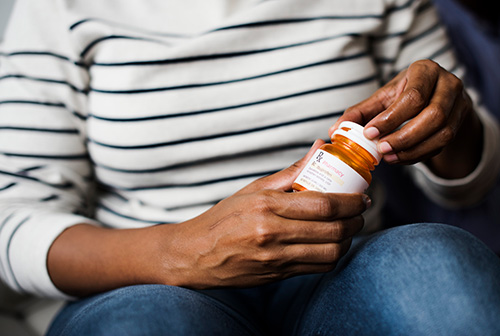Q: I’m 43 years old and have started experiencing the beginning stages of menopause. My mother started going through menopause at my age, so I’m not surprised. What bothers me most is that I have three weeks of mild cramps, bloating, mood swings and depression before each period.

It feels as though my period is coming by way of China. It finally arrives, and then it is gone in four days. That is great, but then it returns a week later and lingers on for another week!
I’m grateful that it is so mild, and I’m only getting my period every three months or so. So here’s the dilemma. To make my periods more regular my doctor wants to put me on Provera. I know this is a synthetic, and I wonder what’s worse: synthetic hormones or irregular periods?
Our answer
A: While we cannot provide medical advice per se, we can offer information about medroxyprogesterone acetate (MPA), the synthetic progestin your physician is recommending. (MPA is the generic form of Provera, also used in Prempro.) Most doctors in-the-know about hormones and menopause are now avoiding Prempro and Provera as much as possible. This is due to the negative impact of MPA on the body. It alters a woman’s biochemistry in a way that can increase her risk for a number of serious medical problems.
Avoiding MPA is especially wise because there are safer, more effective alternatives. These include Prometrium, which is a widely available brand of bioidentical, prescription-strength progesterone. Unlike bioidentical progesterone, a synthetic form of progesterone such as medroxyprogesterone acetate (Provera) is also likely to worsen the mood swings, bloating and depression you describe.
From the mild nature of the symptoms you describe, however, you may not need prescription-strength HRT. Our Hormonal Health Protocol offers a natural approach that may be effective in improving your symptoms and possibly normalizing your cycles as well. Give us a call at 1-800-448-4919 to ask more questions, review your options or get started today!
Return to:










